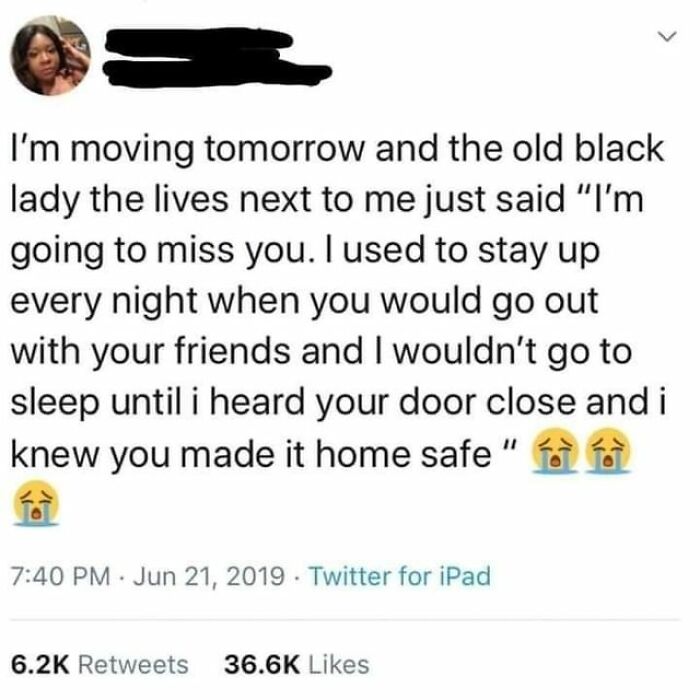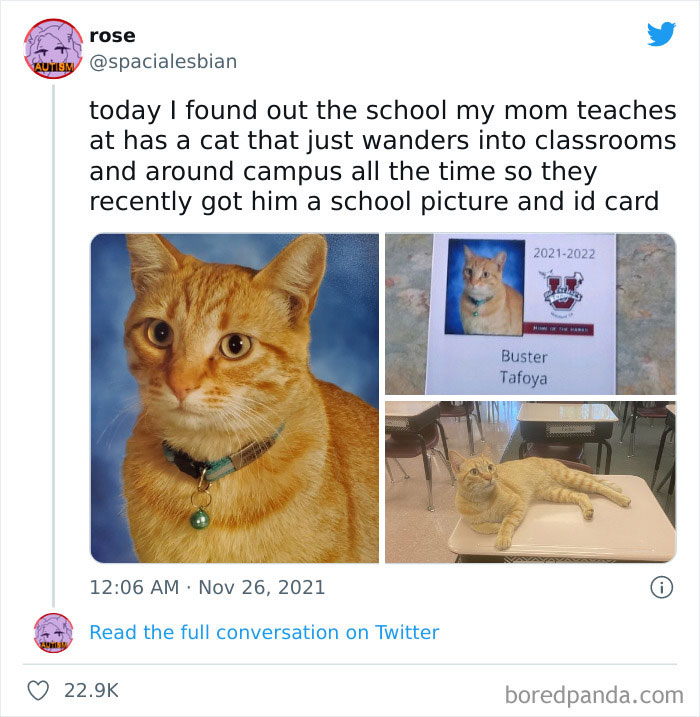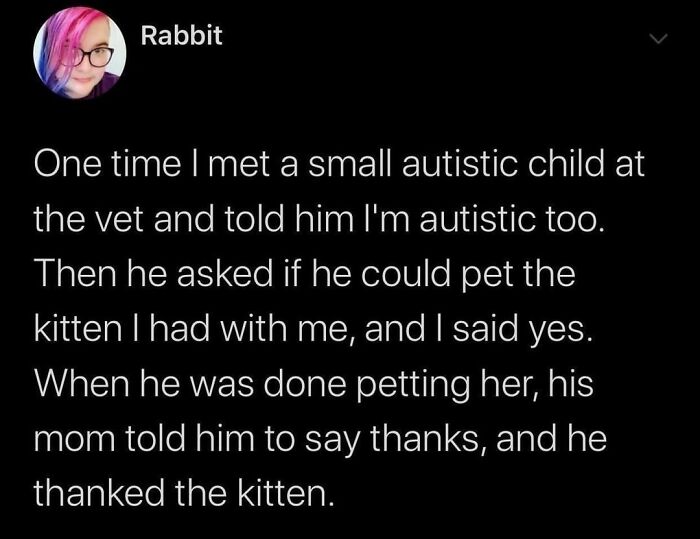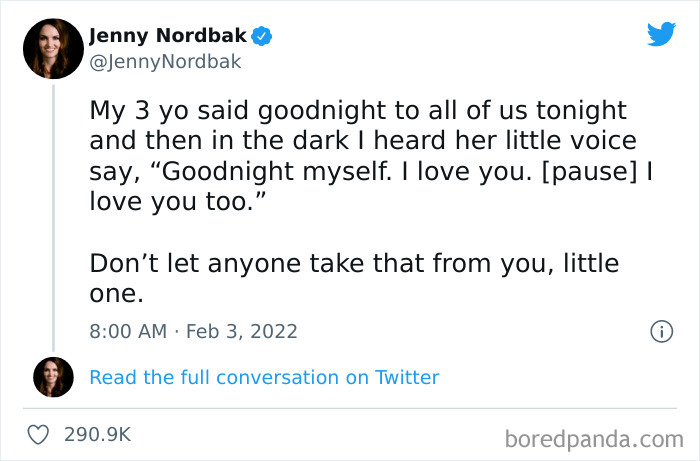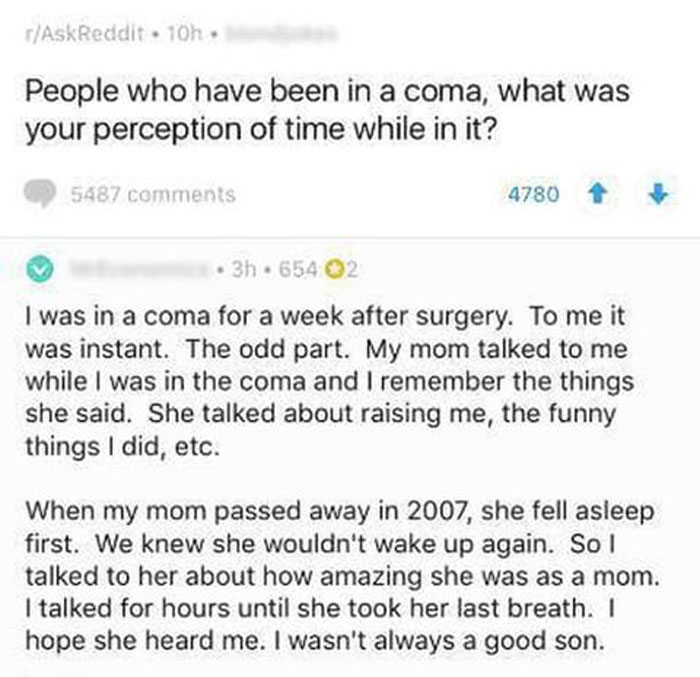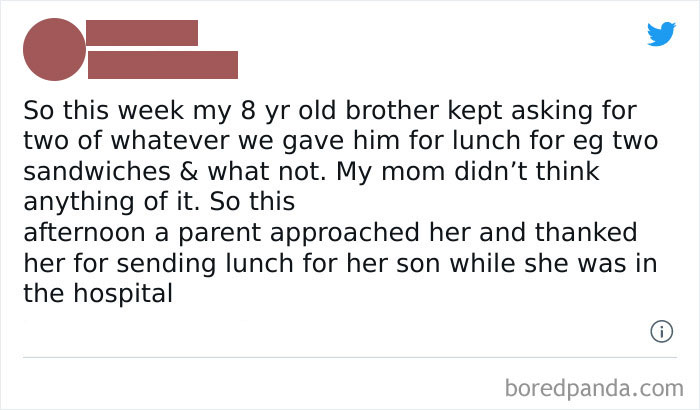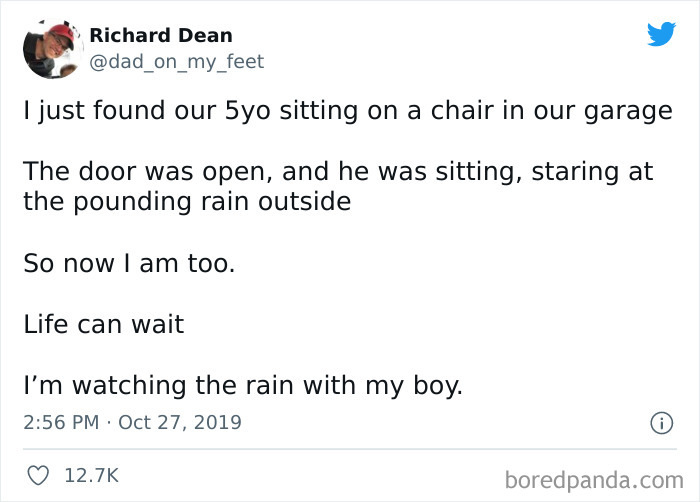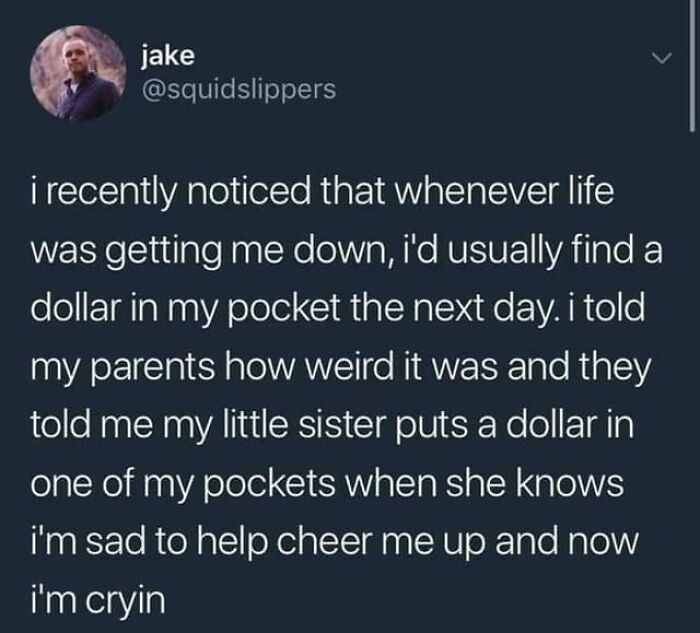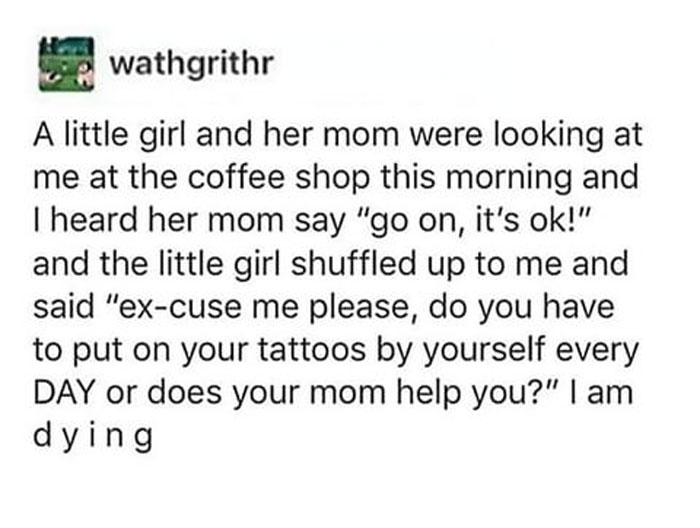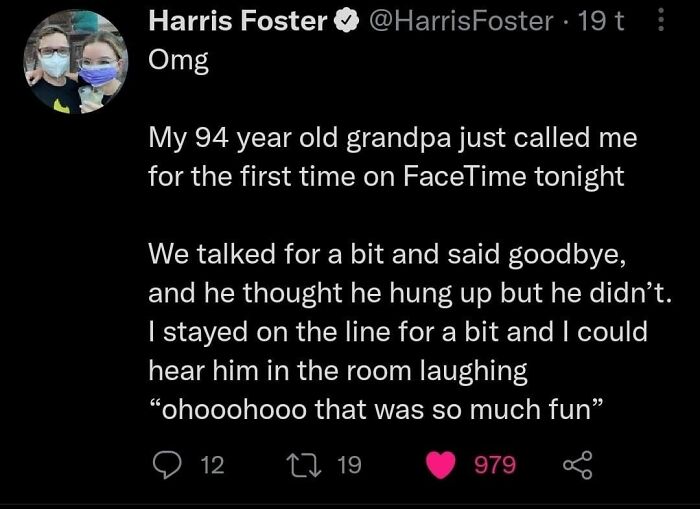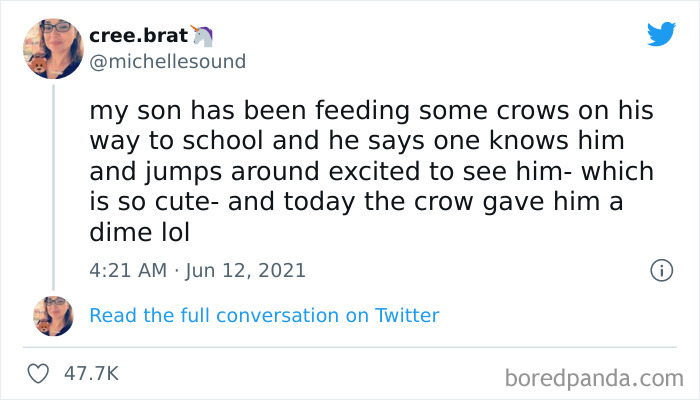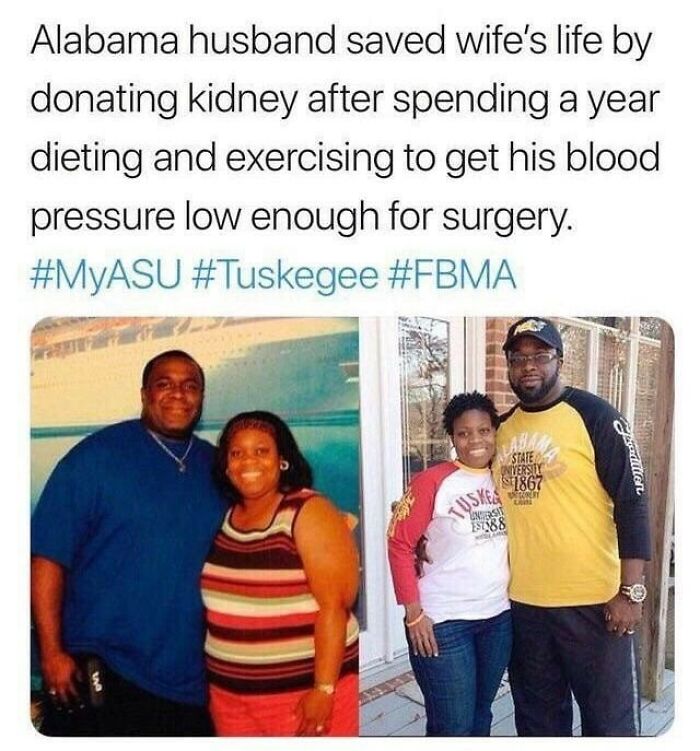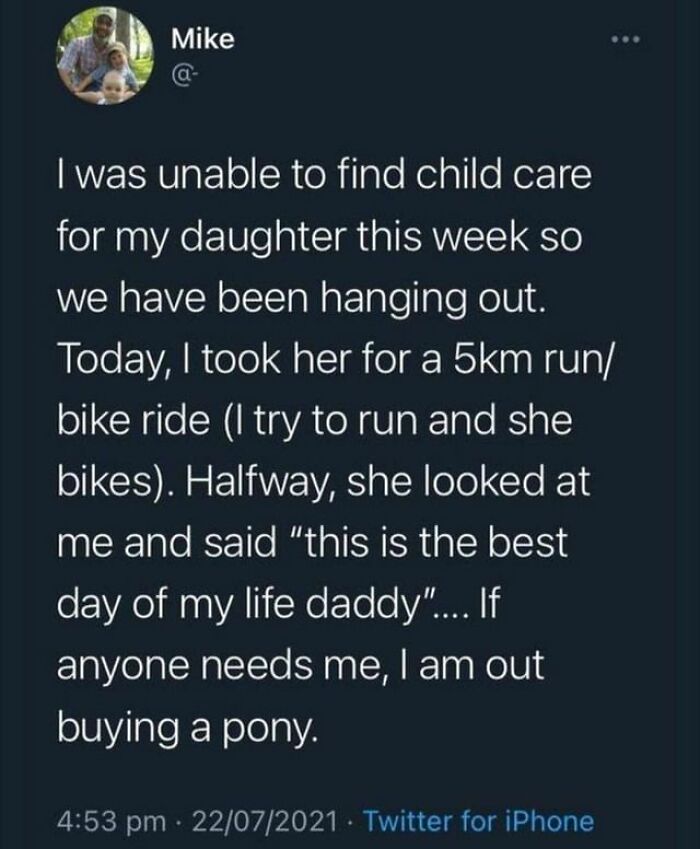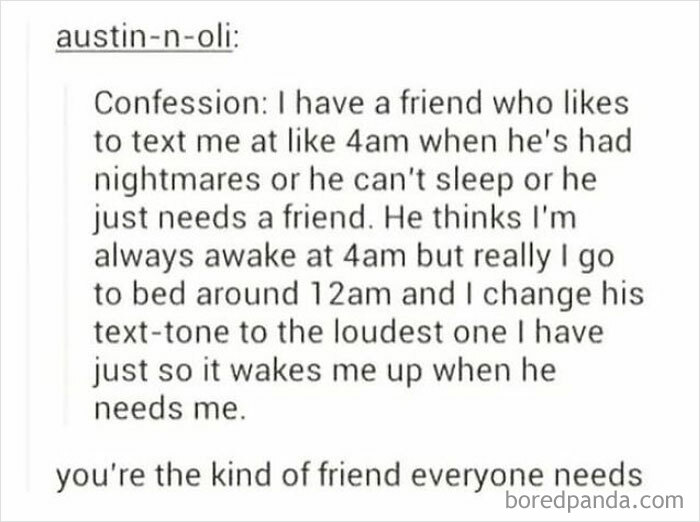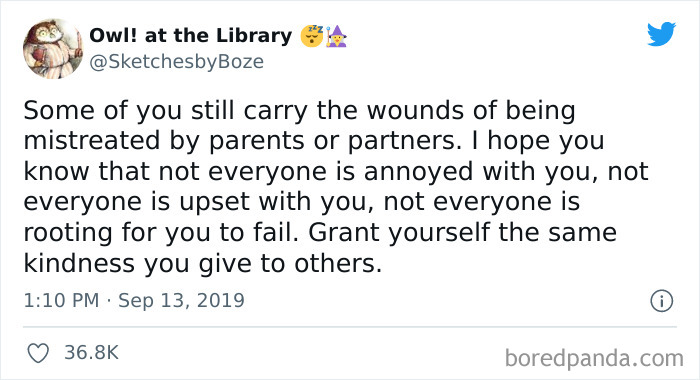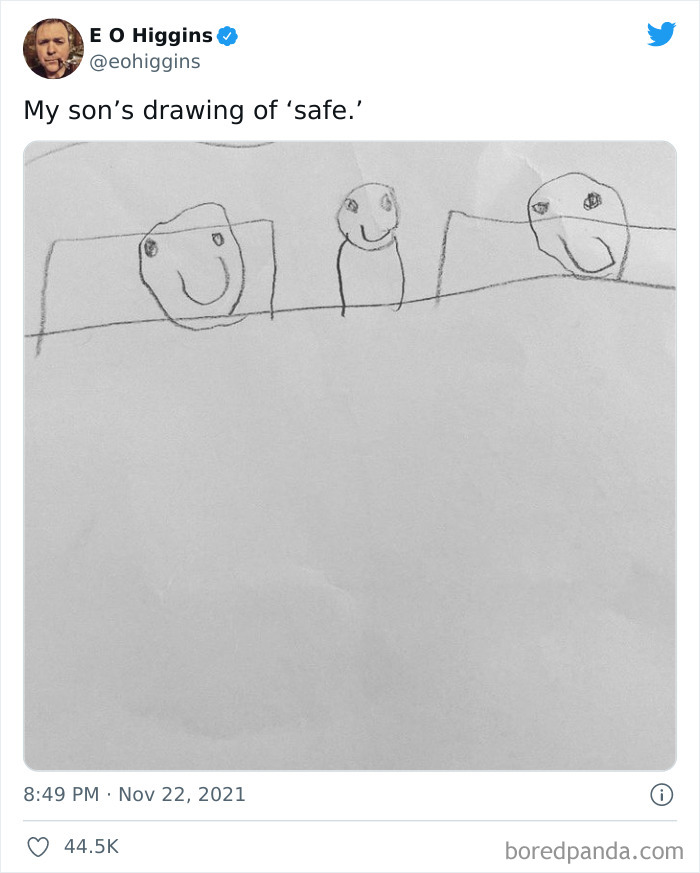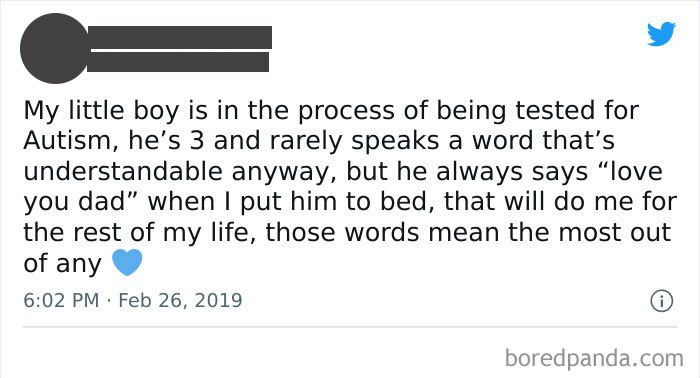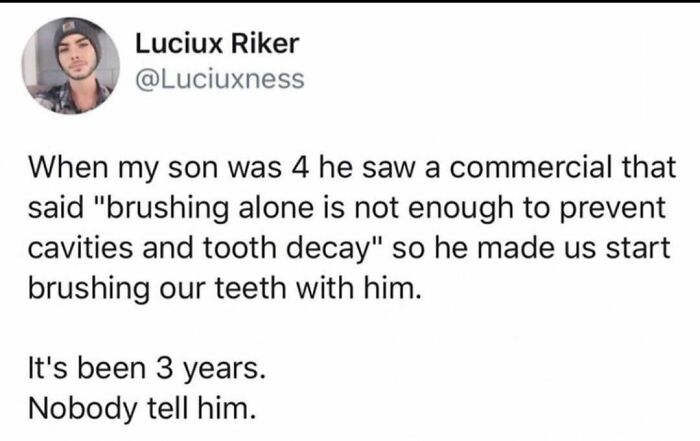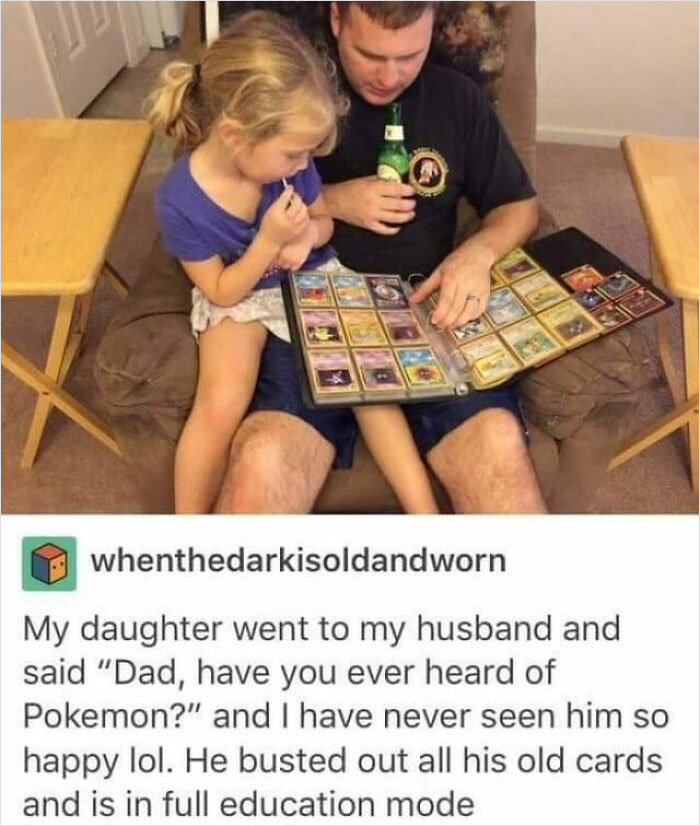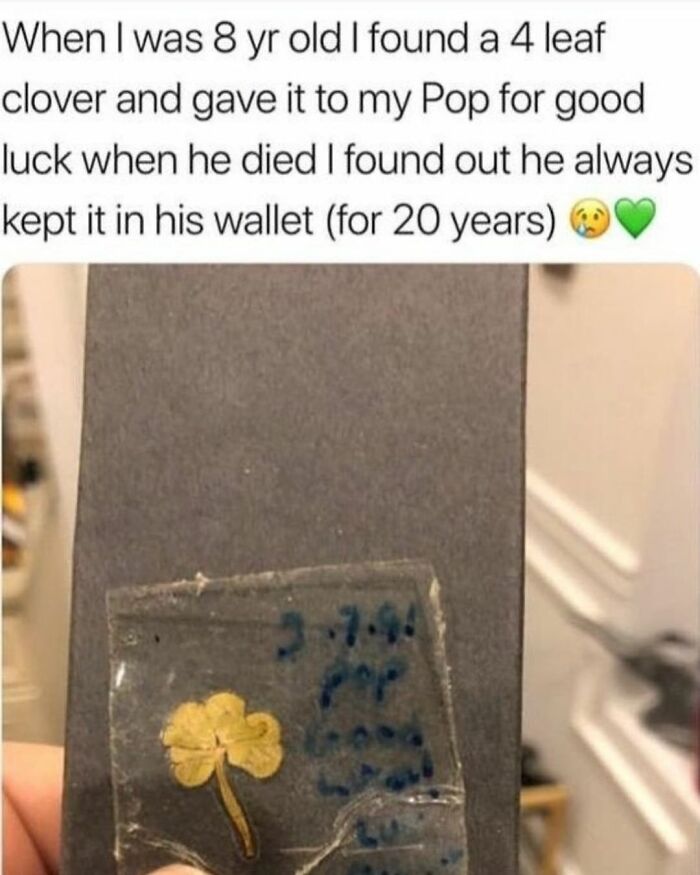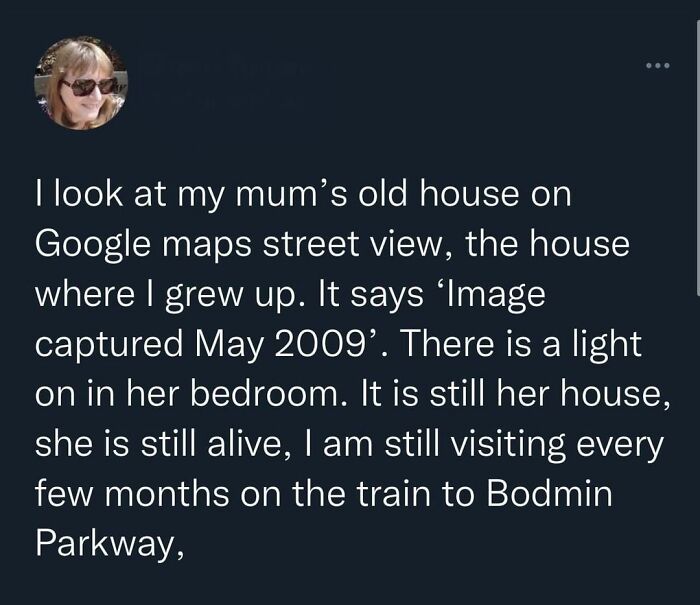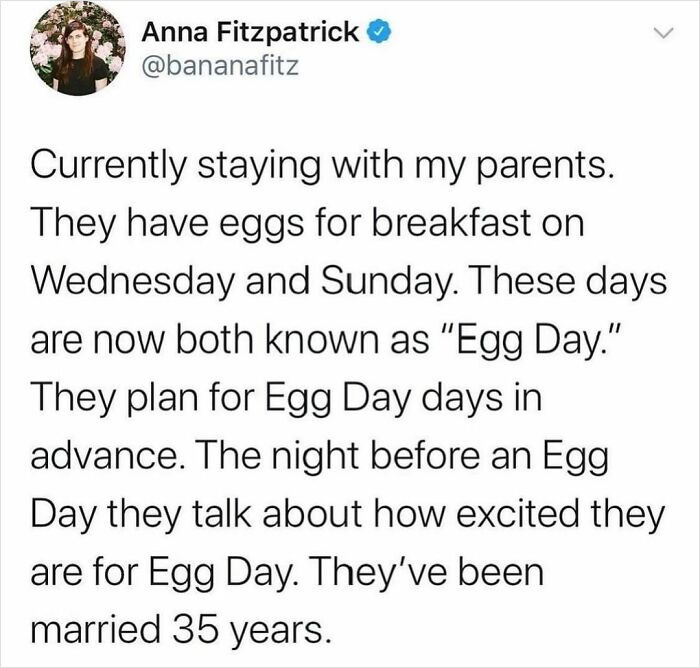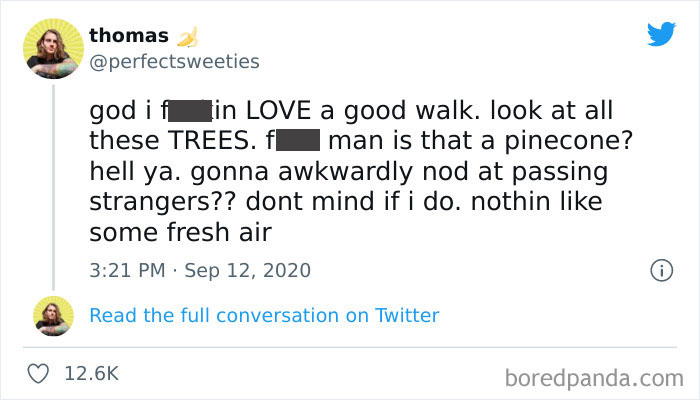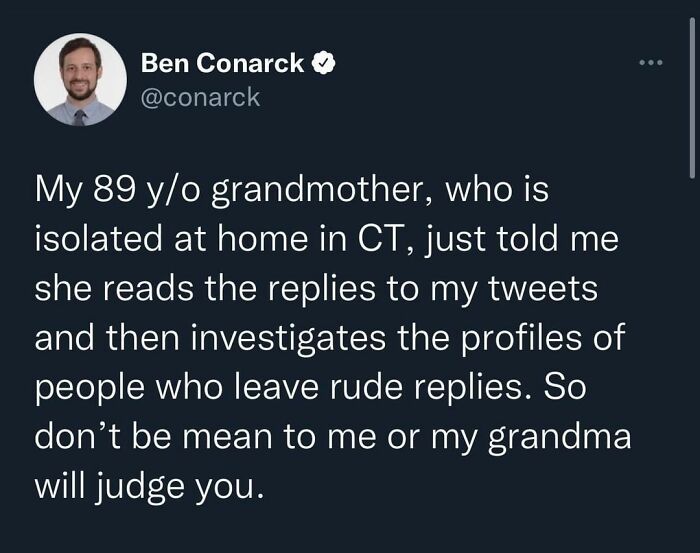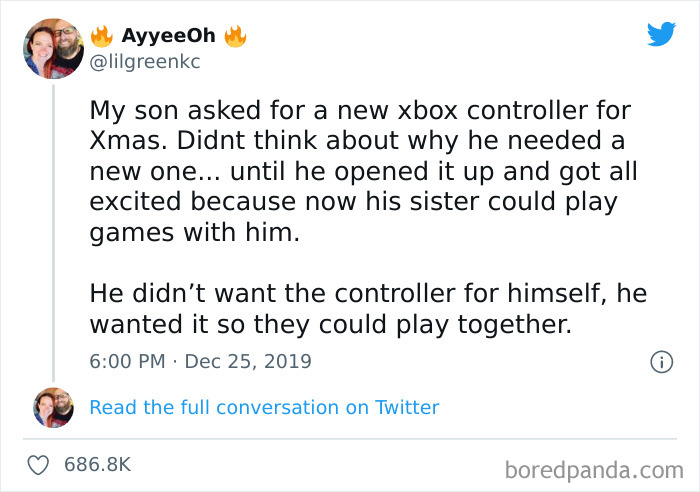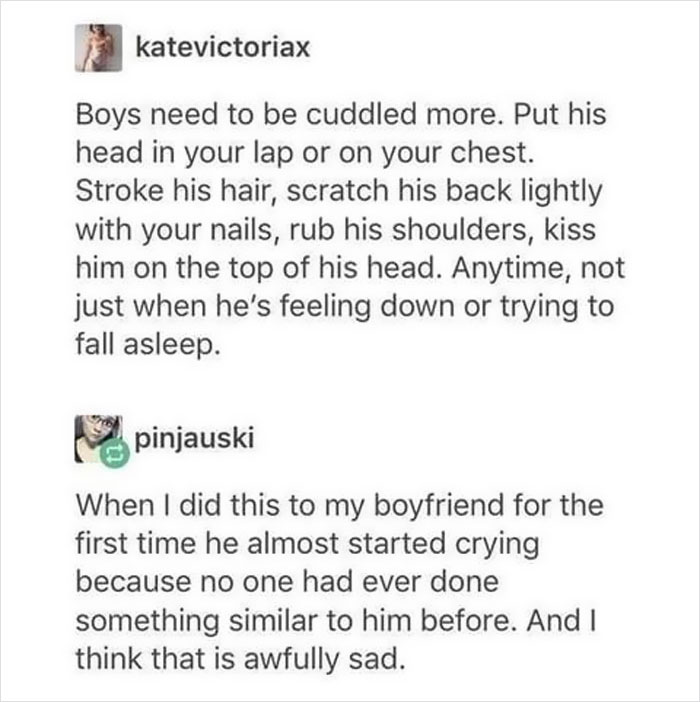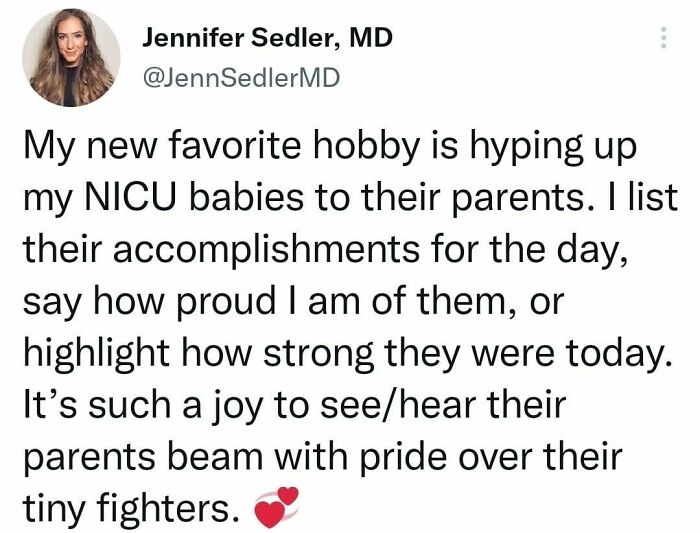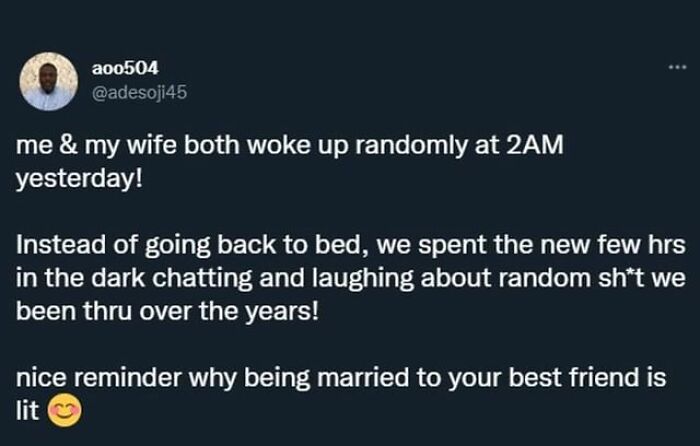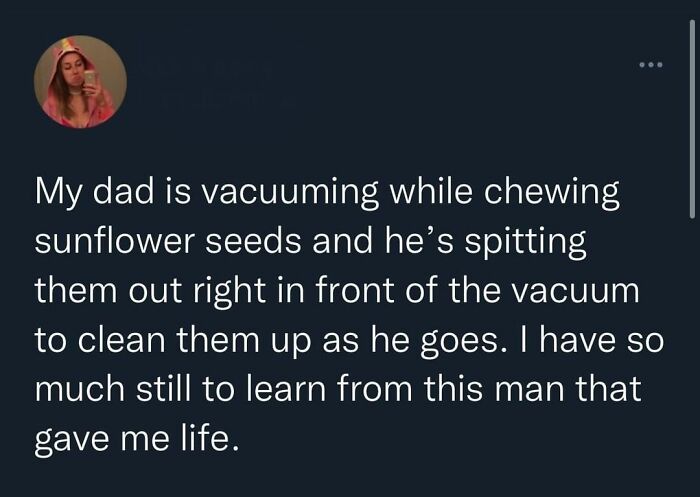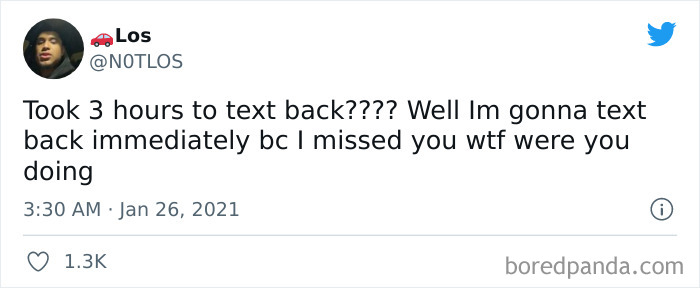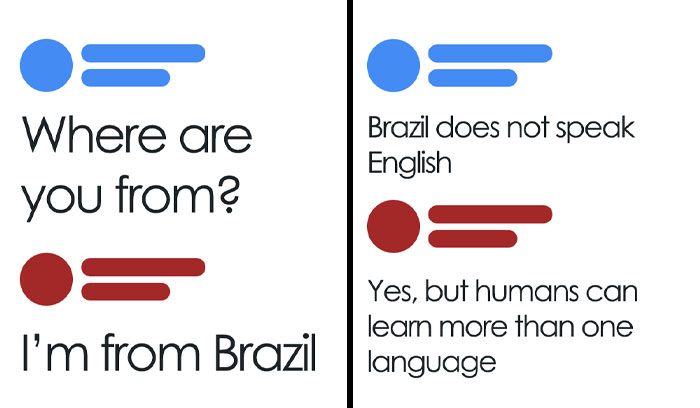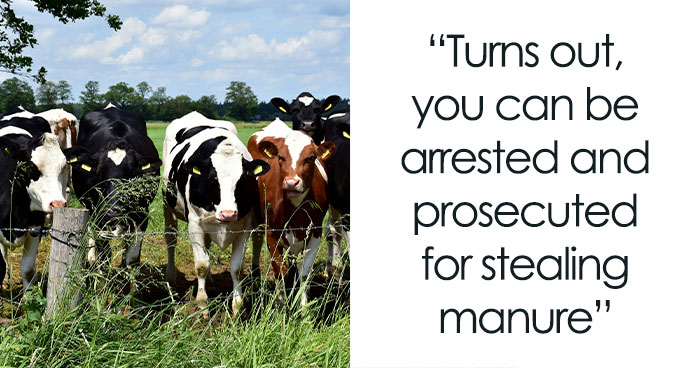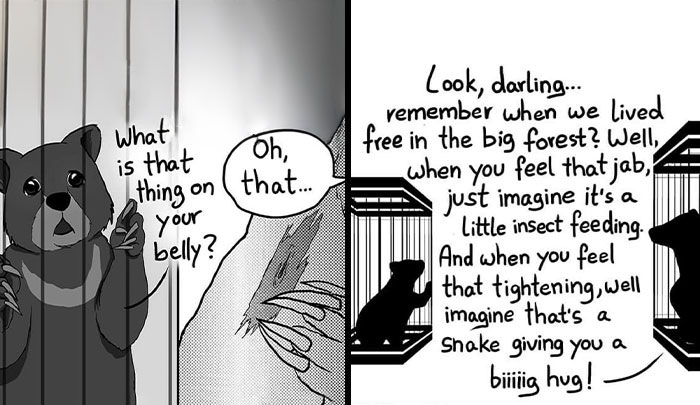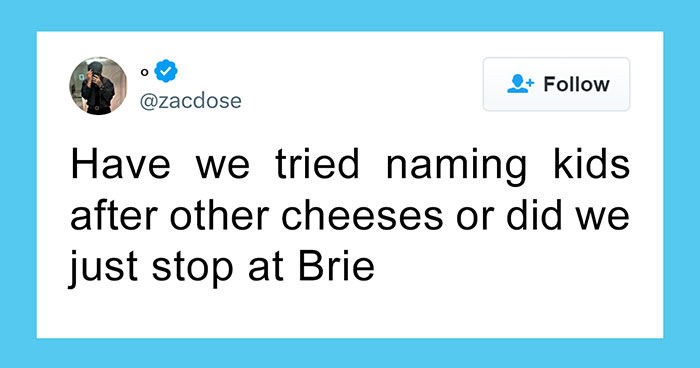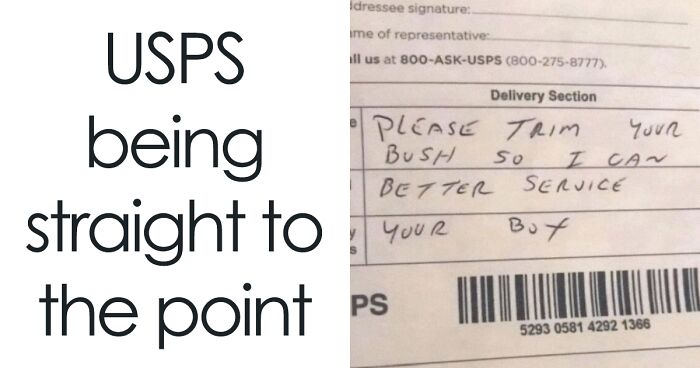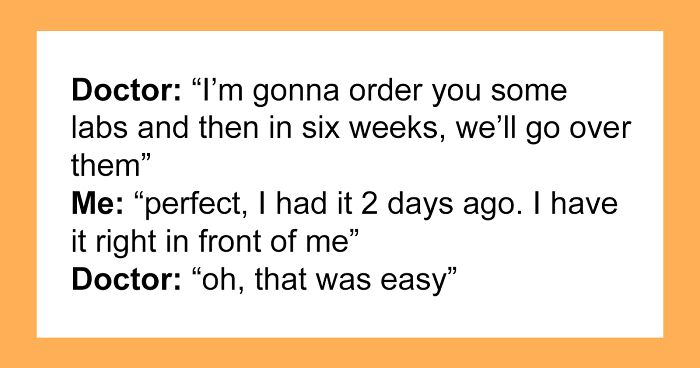
50 Heartwarming Posts From The ‘Wholesome Meets The Internet’ Account To Lift Your Spirits Up (New Pics)
Sometimes it feels like the internet is full of negativity. Every time I open social media or the news, I seem to be bombarded with the bleakest headlines imaginable. While it is important to be a well-informed citizen, constant doomscrolling can't be healthy. We all need to take breaks from the gloom and be reminded that there are plenty of wonderful things happening in the world as well.
Let us introduce you to "Wholesome Meet The Internet", an Instagram page dedicated to compiling the sweetest stories people have shared online and providing a purely positive platform to visit. With over 2,000 posts chronicling these wholesome encounters, mostly through screenshots from other social media sites, this refreshing page has amassed over 230k followers since 2019. So sit back, relax and soak up all of the positivity we've gathered from "Wholesome Meet The Internet". Then keep the good vibes flowing with Bored Panda's first piece featuring the sweet page.
This post may include affiliate links.
This lady is twice a hero - finding a use for what is otherwise waste, AND helping others in need. This should be MUCH higher on this list!
I remember logging onto Facebook ten years ago and finding compilations of animals doing silly things and extremely simple yet relatable memes. Going online felt like a fun escape from the daily stress of middle school, but I can't say that I was learning much. It was purely for recreational purposes. Nowadays, it is amazing how much we can learn online. News is being shared at such rapid rates, and social activism seems to flood our feeds. Political debates, infographics, GoFundMe pages, donation links and news articles are unavoidable. Don't get me wrong, there are many upsides to the ever-educational internet we have today. Having access to knowledge about global issues increases our empathy, and spreading awareness is always a great thing. But positive outlets such as "Wholesome Meet The Internet" are a breath of fresh air when the negativity online becomes overwhelming. It can be easy to forget that every day a million little moments of positivity are happening as well.
One trap many of us can fall into online is "doomscrolling". This refers to the "the action of compulsively scrolling through social media or news feeds which relate bad news". Doomscrolling became so common during the pandemic that the Oxford Dictionary named it a word of the year in 2020 and even added it to the dictionary. While the term may have become popularized in 2020, it remains relevant while many of us seek out constant information about upsetting news stories, such as the war in Ukraine.
Doomscrolling comes from a good place. We feel guilty about the injustices of the world or anxious about the uncertainties, and we want to be as informed as possible. Unfortunately, it can be very challenging to stop the cycle once we've begun. According to Mesfin Bekalu, a research scientist at Harvard, humans have "a natural tendency to pay more attention to negative news". He also explained "mean world syndrome", a term coined in the 1970's giving a title to the belief that the world is much more dangerous than it actually is. The combination of mean world syndrome and a tendency to doomscroll creates a vicious cycle of negativity for many people.
"Sunday I found a kitten at the zoo and brought it home. I was afraid that my parents would get mad at me but today I caught my father showing the family photos to the kitten"
This constant exposure to bad news can actually affect our mental health as well. A 2020 study in Germany found a positive correlation between intake of Covid-19 related news and severity of anxiety and depression. Doomscrolling can also be a way of self-sabotaging our sleep schedules, according to Dr. Ariane Ling, professor and clinical psychologist at NYU. Be careful not to create a routine including doomscrolling before bed, she warns. "It wreaks havoc on your circadian rhythms, and then you’re not able to regulate your mood because you’re grouchy," she explains. "But if we're a little bit more alert and attuned to ourselves, we stand a better chance at being able to say, ‘Oh, God, I'm doomscrolling again’, let me put this down and refocus my energy on something that's meaningful, that's value driven and aligned with how I want to be living my life."
Psychologist Dr. Susan Albers notes that doomscrolling also has the potential to cause "crazy-making". Ingesting so much media inevitably leads to finding conflicting sources, which can be very unsettling when our brains just don't know what to believe. Dr Albers warns that spending too much time staring at screens is never healthy anyway. "Burying your nose in a phone can exacerbate disconnection and loneliness. Being locked on a screen can zap your energy and leave you feeling drained.” Especially after being forced into isolation due to the pandemic, we certainly don't need to seek new ways to feel lonely.
Luckily, these experts have plenty of suggestions of how to break the habit of doomscrolling. One tip is to set boundaries for when and where you can use screens. Set timers, and be strict with yourself. Maybe allot an hour after work to check your devices and catch up on the news, then silence or turn off notifications. Perhaps you want to designate your bedroom as a phone-free zone (yes, they do still make alarm clocks) and pile your nightstand with books instead. Even having a non-smart watch and a physical calendar can reduce temptations to scroll and add more time into your day for activities you actually enjoy.
Another important tip is to change our negative habits. Try replacing doomscrolling with going for a walk, journaling, reading an uplifting book or baking. Over time, the urge to flood our brains with negative news will lessen, and we will be in a healthier place to educate ourselves on difficult topics. Lastly, seeking out positive news can be a healthier habit to form as well. "Understanding that scrolling through good news brings us joy could help make us more aware of how our online behavior affects our emotional state." (So if you haven't followed "Wholesome Meet The Internet" yet, now's your chance!)
I sat down at the bottom of the stairs one time when it was raining. There was an awning over the staircase, which kept me dry. My cat came up to me, and sat in my lap. So I had two sublime natural noises - the rain and the purring of my sweet kitty.
We've all heard that laughter is the best medicine, right? As it turns out, science supports this claim. According to the Mayo Clinic, laughter is actually linked to reducing stress. Some other benefits of enjoying a good giggle are soothing muscle tension, relieving pain and improving our moods. Frequent laughter can also help improve our immune systems when our positive thoughts "release neuropeptides that help fight stress". From a social perspective, laughter brings people together as well. Sharing a joke with a loved one (or even with a stranger!) can help us feel much less alone in this crazy world.
Don't underestimate the power of positive thinking. Even smiling more has been shown to reduce heart rate and blood pressure during stressful situations, according to a University of Kansas study. Thankfully, smiling is contagious too. “This is because we have mirror neurons that fire when we see action,” says Dr. Eva Ritvo, a psychiatrist and co-author of "The Beauty Prescription: The Complete Formula for Looking and Feeling Beautiful". As the name implies, mirror neurons cause us to reflect behavior we observe in others and have been linked to our capacity for empathy. Passing along a smile is so easy and will likely create a domino effect, we might as well be generous with them!
When you can't give someone an in-person smile, forwarding a funny video or a post from "Wholesome Meet The Internet" is the next best thing. Explored in the i-D article "How Self-Isolation Made the Internet Wholesome Again", many have found creative ways to use the internet for positivity. Aside from the joy of sharing memes and funny videos, the article mentions crowd-funding for hospitals and food banks as well as donating to Mutual Aid groups. Even finding new creative outlets and sharing talents and skills we've acquired during the pandemic helps spread a little positivity with our online communities.
"An elementary school bus driver asked every kid on his bus what they wanted for Christmas. He bought every child a gift."
While there is certainly no shortage of negativity online these days, there are plenty of joyful stories out there too. Thanks to pages like "Wholesome Meet The Internet", we can all combat doomscrolling and receive our recommended daily allowance of good vibes and smiles. Remember, a wholesome story a day keeps the doctor away... Or something like that.
Be sure to upvote your favorite examples in this list, and please feel free to share your own uplifting anecdotes with us in the comments!
It's the little things children remember. It's sweet and such a reminder. They want you to be present with them. Often adults (I'm guilty of this too) spend time (and money) for the kids and not with them.
that way the monsters can take one of his parents first and he'll have time to get away
My brother was the same, no words - but now he's a chatterbox 😄 (edit: others got nice stories below 👇)
It's so rude to comment on peoples bodies. No matter if they went smaller or bigger or whatever. You don't know what that means to them. Blah! And beauty is not about body size. Good for him doing the basic thing but still, it's not that he's decent - it's the comments that are rude and uncalled for.
People who were so excited about teamtree thought it would end global warming. We must look at these efforts not as an endgame solution or we won't fix anything. It is a cleanup.
I'm a grown a$$ 43 man and I'm ugly crying. And I have to work, for Pete's sake!
Made the same mistake reading this at work, now I'm trying to act like my allergies are attacking me.
Load More Replies...I'm a grown a$$ 43 man and I'm ugly crying. And I have to work, for Pete's sake!
Made the same mistake reading this at work, now I'm trying to act like my allergies are attacking me.
Load More Replies...
 Dark Mode
Dark Mode 

 No fees, cancel anytime
No fees, cancel anytime 













